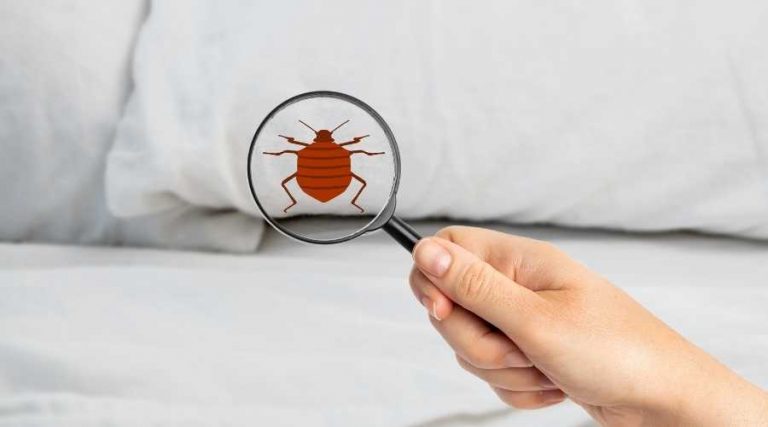Bed bugs are oval-shaped, non-flying insects that feed on their hosts (humans and animals) at night. These annoying insects prefer to hide in soft, warm places such as mattresses, sofas, and clothes, and their bites leave tiny marks on the skin. Although these bed bug flea bites are generally harmless, they should be treated immediately to avoid allergic reactions and unpleasant symptoms.
Bed Bug Symptoms
Bedbugs secrete small amounts of anesthetic before feeding on people, leaving them numb to their bites. The symptoms of these bites might take several days to appear. These symptoms include:
- Burning and itching
- Blisters that are filled with fluid
- Each bite is red and swollen, with a dark spot in the center
- Multiple bites grouped in lines or clusters
Treating Bed Bug Bites
Following are the six easy methods to treat bed bug bites.
1. Wash Bite with Soapy Water
The best method to avoid skin infections and relieve irritation from bug bites is to wash them with soapy water. Make sure to follow the below-mentioned steps to make the most of this method.
- Make a thick lather of soap and gently apply it to the afflicted region.
- Repeat the process until the entire region is covered with lather.
- Allow the lather to dry on the bitten areas, and you will notice an instant reduction in irritation.
2. Relieve Itch with Home Remedies
The following home remedies can help relieve the itchiness associated with bug bites.
2.1 Baking Soda & Water
A thick paste of baking soda and water is an effective home remedy to treat the itching caused by bug bites. You can make this paste by adding small amounts of water to the baking soda. Once the paste is ready, apply it to the affected region and let it dry for an hour. Wash the paste with the help of warm water, and you will feel instant relief from irritation.
2.2 Oatmeal
The healing and antioxidant properties of oatmeal make it one of the best home remedies to treat bug bites. Applying oatmeal to bite marks helps relieve inflammation and swelling.
2.3 Vinegar
Vinegar is a natural disinfectant and can reduce the stinging or burning sensations of bug bites. Make a mixture of vinegar with cold water and soak a paper towel in it. Apply the towel on the bites for a few minutes, and it will relieve the burning sensation immediately.
3. Use an Over-the-Counter Anti-Itch Cream
Any cream that contains hydrocortisone or cortisone can reduce inflammation and itching from insect bites. Before applying the cream to the affected region, never forget to read the instructions mentioned on the package. These creams are often very mild and do not cause any side effects. If you want to use a stronger corticosteroid cream, it is favorable to consult a doctor first.
4. Apply Calamine Lotion to the Bites
When applied to the bites, calamine lotion provides instant relief from the itching. It also assists in drying the rash and protecting the skin while it recovers.
5. Use Cold Compress
A cold compress can provide momentary relief from itching. Apply a cold compress or an ice pack wrapped in a cloth on the bites for twenty minutes, then wait for at least an hour before reapplying. Repeat this process several times to get rid of the irritation.
6. Take Oral Antihistamine
Oral antihistamines, like diphenhydramine (Benadryl), can help alleviate the allergic response caused by bug bites. They inhibit the release of histamine, a chemical that causes bites to itch and swell. These antihistamines, however, might make you feel drowsy, so taking them shortly before bed can ease the irritation and help you sleep better.

